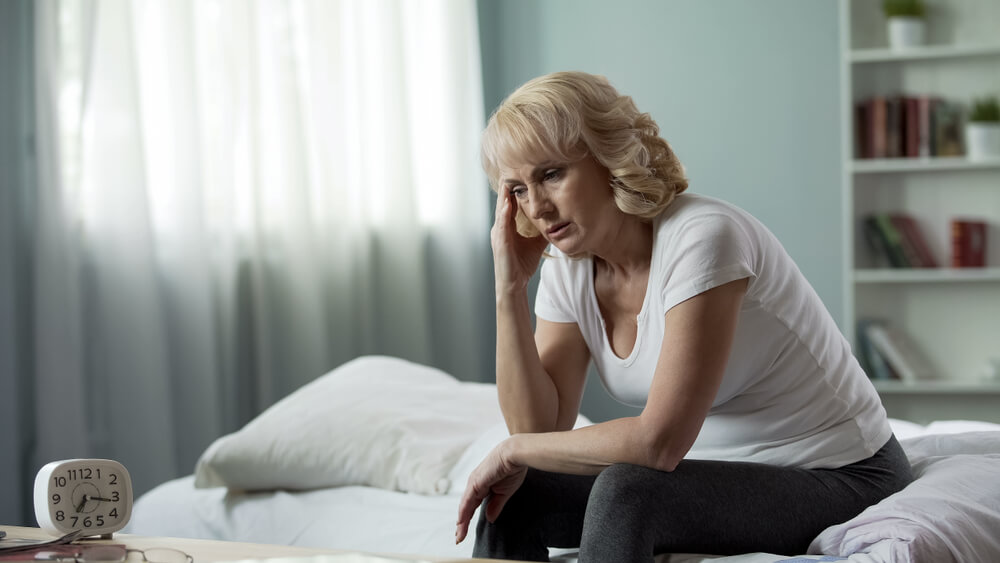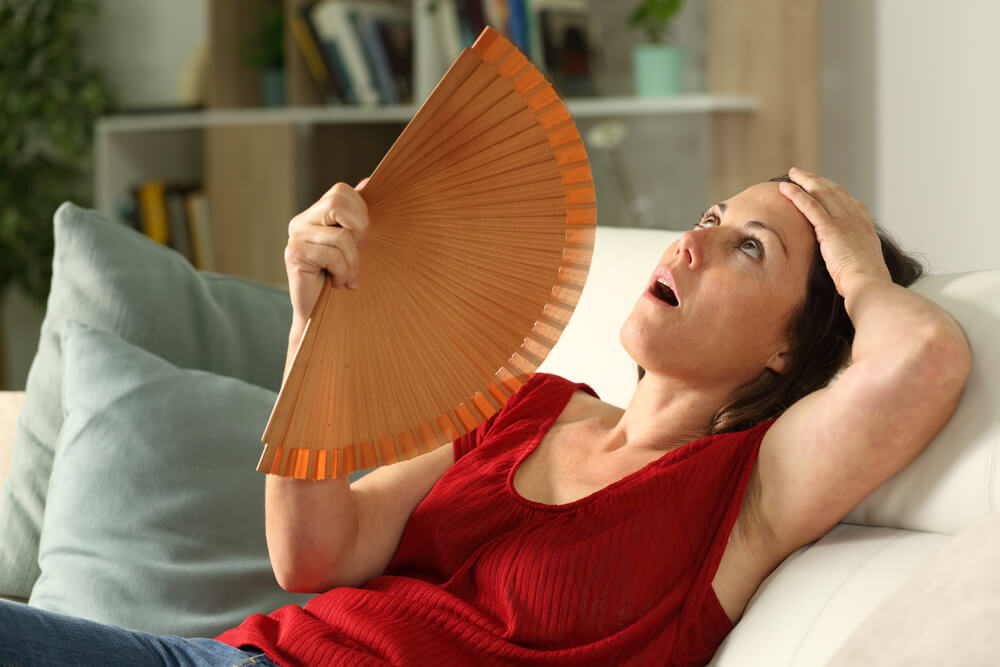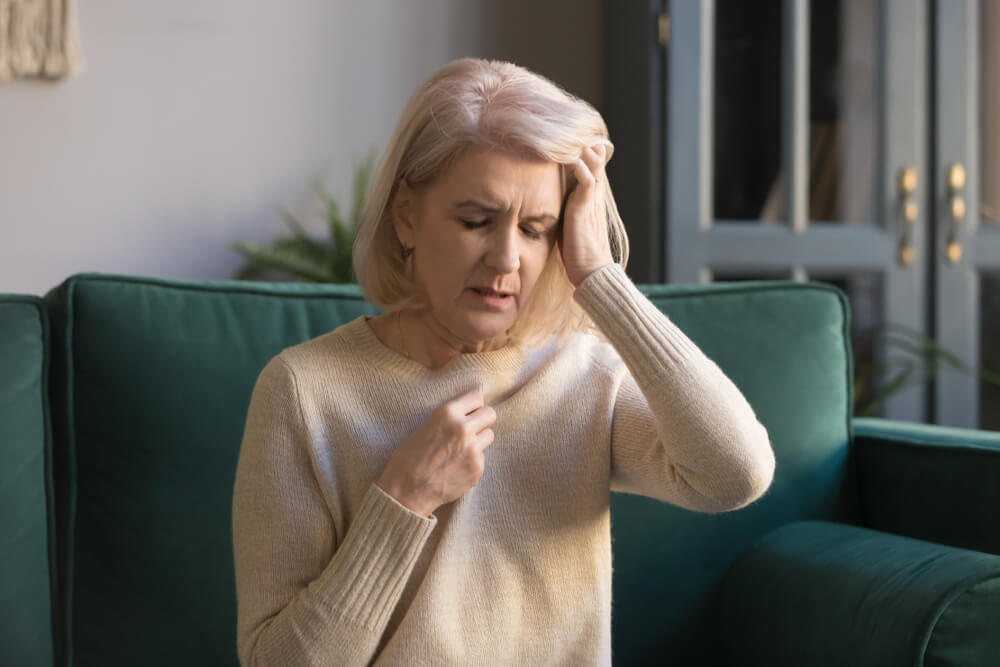What is Menopause?
As women, we all remember the infamous time we had “the talk” with a guardian, older sister, or friend. It was probably around the middle school years, when our bodies were undergoing some serious changes in hormones and development. If you never experienced something like “the talk,” you can probably relate to the horror, curiosity, or excitement surrounding becoming a woman.
Maybe you remember thinking, “What will it really feel like?” You can probably relate now that it is hard to explain what exactly puberty is like or what getting your period will feel like. It can be different for every woman.
Sure, you can cover the bases like cramps are solved with some OTC pain reliever or the debate surrounding the preference of tampons versus pads. But, it is basically impossible to know what your body is going to feel like until you actually go through it for yourself.
The same goes for menopause. If you had that infamous talk, you probably covered everything about how to manage when you get your period. But what was probably left out was what to do when your period stops.
That is totally normal because how is anyone supposed to remember those tips and tricks 30 plus years down the line? Definitively, menopause is when the female body stops menstruating for one whole year. The ovaries stop producing hormones, and women are no longer fertile.
Many symptoms accompany this transitional period for women. You may remember your mother or another older woman in your life describing her most infamous symptom, hot flashes, while fanning herself.

Starting Age of Menopause
There are probably a thousand questions running through your mind, and the one at the forefront might be, “When is the starting age of menopause?” The answer to that question is a bit tricky because, as you probably know, every female body is different.
At Women’s Care of Bradenton, we follow the medical community in defining the three stages of menopause as Perimenopause, Menopause, and Post-Menopause, to handle our yearly menopause patients.
Perimenopause is the word for the beginning of menopause. Typically, the starting age of menopause begins around 45 years old & lasts several years. The average age that women experience menopause in the United States is 51.
Some women experience premature menopause. Premature menopause is when a woman goes 12 months without a period before the age of 40. The signs of menopause at age 40 can occur naturally or after a procedure that removes the ovaries.
Symptoms of Menopause at age 40
When a woman experiences menopause because of a procedure, that is called surgical menopause. Surgical menopause is different because it happens in an instant. Natural menopause occurs gradually over the course of several years, while surgical menopause happens immediately after the ovaries are removed.
This instantaneous shift in hormones from surgically removing the ovaries can be overwhelming to the body. Some women experience more intense symptoms of natural menopause during surgical menopause. Typical symptoms like hot flashes, memory loss, or mood swings can be much more severe with the abrupt change of surgical menopause.
The Earliest Age of Menopause
The earliest age of menopause can vary between women. Symptoms of menopause at age 40 are more uncommon. Only one percent of women experience menopause before the age of 40. There is not an exact earliest age of menopause.
The Signs of Menopause at Age 40
The symptoms of menopause at age 40 are no different than menopause at an older age unless you are experiencing surgical menopause, in which case symptoms are more intense and their onset immediate.

The Three Stages of Menopause
- Perimenopause is phase one. Phase one lasts 7-10 years on average. The starting age of menopause varies. Your ovaries will slow estrogen production causing irregular periods and bleeding. Irregular periods can be defined as inconsistent frequency, flow, and length of bleeding.
During perimenopause, estrogen levels tend to fluctuate the most frequently, causing this time period to have the worst and most intense symptoms. This means that hot flashes and brain fog are likely to disrupt your day-to-day life.
The symptoms of menopause are legitimate. It would be best if you didn’t marginalize what you are going through or call yourself crazy. Surround yourself with people who empathize with you. It is also important to find a doctor you can trust, feel understood, and heard by to make for the smoothest transition.
During perimenopause, a woman can expect to experience a range of symptoms. These symptoms vary, and other women may have worse, similar, or differing symptoms than you. The signs of menopause at age 40 and above are as follows:
- Period Irregularity
- Sudden changes in body temperature
- Sleep disruption
- Fatigue
- Vaginal Dryness
- Low Sex Drive
- Cloudy Memory
- Mood Swings
- Weight Change
- Bloating
- Hair and skin changes
These symptoms are not fun and can seem unsettling. It is important to remember you are not alone in menopause. If age 50 is used as an estimate for the average age of menopause, then there are about 50 million yearly menopause cases.
You do not need to battle your symptoms alone with that number of yearly menopause cases; there is a community of women going through what you may be experiencing. There are home remedies to hormone therapies to mitigate whatever symptoms you may be experiencing.
- Menopause in full bloom is the second phase. At this point, you will have gone through a full year without your period. One of the main signs of menopause at age 40 and above is when your period stops completely. Your ovaries hardly produce estrogen anymore and have stopped releasing eggs altogether.
This phase actually only lasts one day, and the next day you are in post-menopause.
- Post-menopause is the third and final phase of menopause. Once you have gone 12 months and one day without your period, you enter this stage for the rest of your life. This may seem daunting, but it is the last time you will naturally experience extreme changes in your hormone levels.
Once upon a time, women would experience the symptoms most common during perimenopause for the rest of their life. Thankfully, however, hormone stabilizing treatments have greatly subsided these symptoms.
It is still important, though, to make lifestyle changes along with the recent changes your body has gone through. Even though symptoms are masked, it is important to address them.
For women, life with less estrogen means a higher risk of diseases like osteoporosis or heart disease. Women also may experience changes to their vagina and bladder.
Call us if you are experiencing these symptoms or think you may be starting menopause. The symptoms associated with perimenopause are no joke, and the Post-menopause lifestyle is not a walk in the park.
We can help come up with the best solutions to address the risks and symptoms you may be experiencing. Our team of trained professionals understands all aspects of female health. We are here for you. It is our goal to meet the needs of our patients and put their care first.


